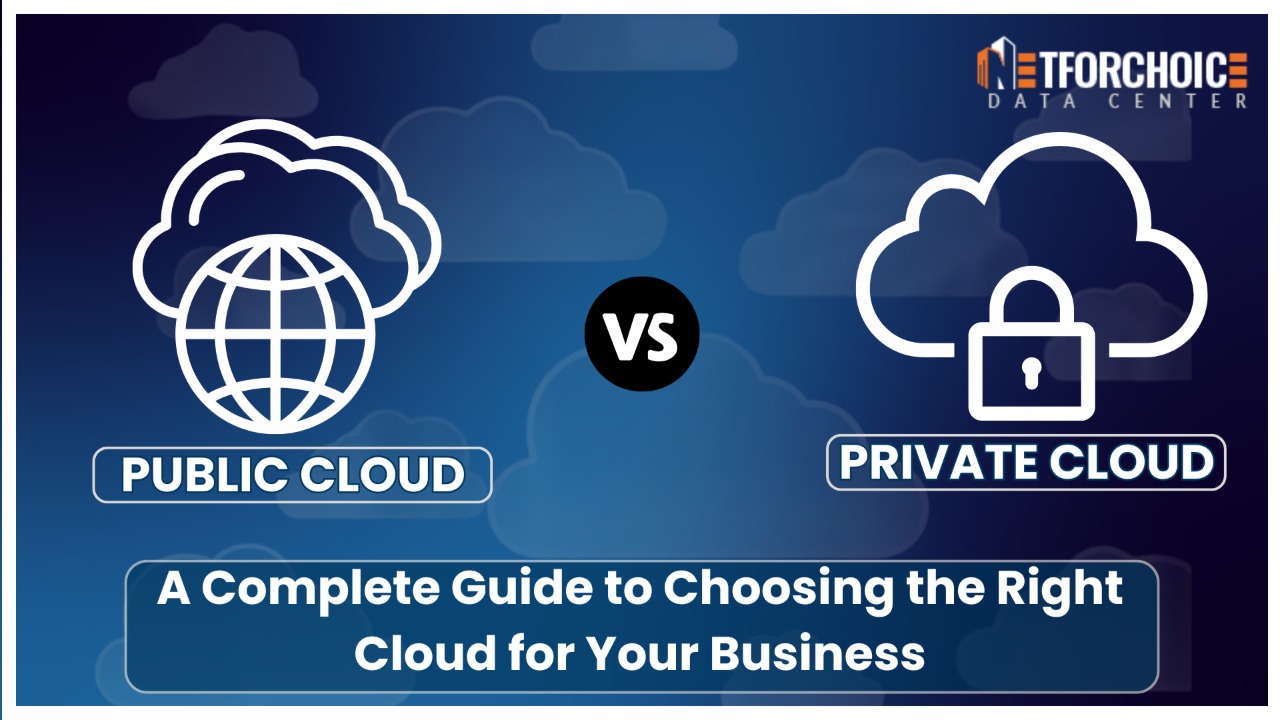Choosing a suitable cloud deployment model is a key decision for any organization looking to change its IT infrastructure. As more organizations turn to cloud computing, organizations often need to choose between the benefits of Public Cloud vs Private Cloud. Both are scalable, reliable, and flexible solutions, yet the selection really hinges on the security requirements, compliance issues, performance expectations, and budget factors.
Here, we will demystify the differences between these two models, identify their main features, delve into use cases, and offer a simple comparison to enable you to choose the best fit for your company.
What is Public Cloud?
A public cloud is a kind of cloud infrastructure that is offered and managed by third-party businesses like AWS, Google Cloud, or Microsoft Azure. Several businesses use the same infrastructure in this model, but their data is protected by virtual isolation.
Pay-as-you-go billing is used for public cloud services, which are provided online and only charge for the resources you use.
Key Features:
- Multi-Tenant Architecture: Resources like servers, storage, and networking are shared, making it cost-efficient.
- On-Demand Resource Scaling: You can quickly scale up or down based on traffic or workload spikes without worrying about infrastructure capacity.
- Low Maintenance: The infrastructure is fully controlled by the cloud provider, leaving your internal IT staff free.
- Global Access: Services are accessible from anywhere, which is ideal for distributed teams or customer-facing applications.
What is Private Cloud?
A Private Cloud is a cloud computing environment entirely dedicated to a single company. It provides all the advantages of cloud computing—like scalability, virtualization, and automation—but in a single-tenant infrastructure, so your organization doesn’t have to share resources with anyone else.
Private Cloud may be hosted on-premises (in your data center) or managed off-site by a cloud provider such as NetForChoice.
Key Features:
- Dedicated Resources: Every computing, storage, and network resource is allocated to a single organization to provide predictable performance
- Enhanced Security & Compliance: Provides stricter controls for data security, access management, and regulatory compliance.
- Full Customization: You can design the environment to match your specific workloads, industry requirements, or legacy application needs.
- Greater Administrative Control: You decide how the infrastructure is configured, maintained, and accessed—ideal for critical applications and sensitive data.
Key Differences Between Public and Private Cloud
Before going into the comparison table, let us explain the key decision-making factors with concise explanations:
1. Ownership & Control
- Public Cloud: Managed and controlled by a third-party provider. You use their infrastructure but do not own its underlying configuration.
- A private cloud is one that you own or that is solely run for you. Its operation and design are entirely within your control.
2.Cost Model
- Public Cloud is more financially beneficial on the front end – ideal for start-up companies or companies that have limited CapEx to use.
- Private Cloud demands greater up-front investment but potentially long-term savings for enterprises that have known workloads and security requirements.
3. Security
- Public Cloud provides standardized security mechanisms, which are usually adequate for most applications but might not be appropriate for sensitive information.
- Private Cloud provides you with control over your own security policies, encryption methods, and governance over data – this is best for regulated industries.
4. Scalability
- The Public Cloud allows for great elastic resources when demand arises.
- Private Cloud does scale, but usually requires additional hardware and provisioning be done by someone outside the applications, making the process slower.
5. Compliance
- A private cloud could offer a better setting for aligning those controls if your company needs to take compliance frameworks like HIPAA, GDPR, or ISO into account.
6. Performance
- In Private Cloud you will have dedicated resources, meaning no “noisy neighbors”—which guarantees a consistently high level of performance.
- Public Cloud performance can vary slightly especially in peak usage, but the larger providers now offer high SLAs.
Comparison Table: Public Cloud vs Private Cloud
Similarities Between Public & Private Cloud
Despite their differences, both cloud models offer:
- Virtualization & Automation: Both rely on hypervisors and automation for provisioning and scaling.
- Remote Accessibility: For workforce mobility, available through private networks or the internet.
- Disaster Recovery Options: Both offer support for backup and disaster recovery planning.
- Cloud-native friendly: Kubernetes, container, and contemporary app framework support.
Real-World Use Cases
Public Cloud is best suited for:
- E-commerce websites need to handle unpredictable traffic.
- Startups needing great scalability but with low-cost infrastructure
- Testing the development area and surroundings.
- Worldwide user bases for web-based systems..
Private cloud will be ideal for:
- Financial firms requiring strict compliance as well as for healthcare.
- Large companies with specific customizing needs and legacy systems.
- Companies running private data or proprietary apps.
- Businesses need stable, predictable performance at all times.
Conclusion:
Deciding between a Public and Private Cloud is not just a technical choice—it’s a strategic one that can impact your organization’s agility, compliance, and long-term scalability.
Companies that value quick deployment, cost-efficiency, and flexible scalability free from infrastructure management’s overhead will find Public Cloud perfect.
Organizations handling sensitive data, needing strict compliance, or seeking more control over their IT environment will find Private Cloud more appropriate.
However, in many cases, the best solution might lie in a hybrid approach, where businesses leverage the strengths of both models to strike the perfect balance between performance, security, and flexibility.
For the Best Cloud Strategy, Collaborate with NetForChoice
Every company has different cloud needs, and we at NetForChoice are aware of this. We offer safe, legal, and effective cloud environments that grow with your business whether your needs are for the scalability of public clouds, the control of private infrastructure, or a hybrid solution particular to your industry.
See our experts for a customized approach on cloud deployment.
Let’s together design the cloud environment you have always wanted.
